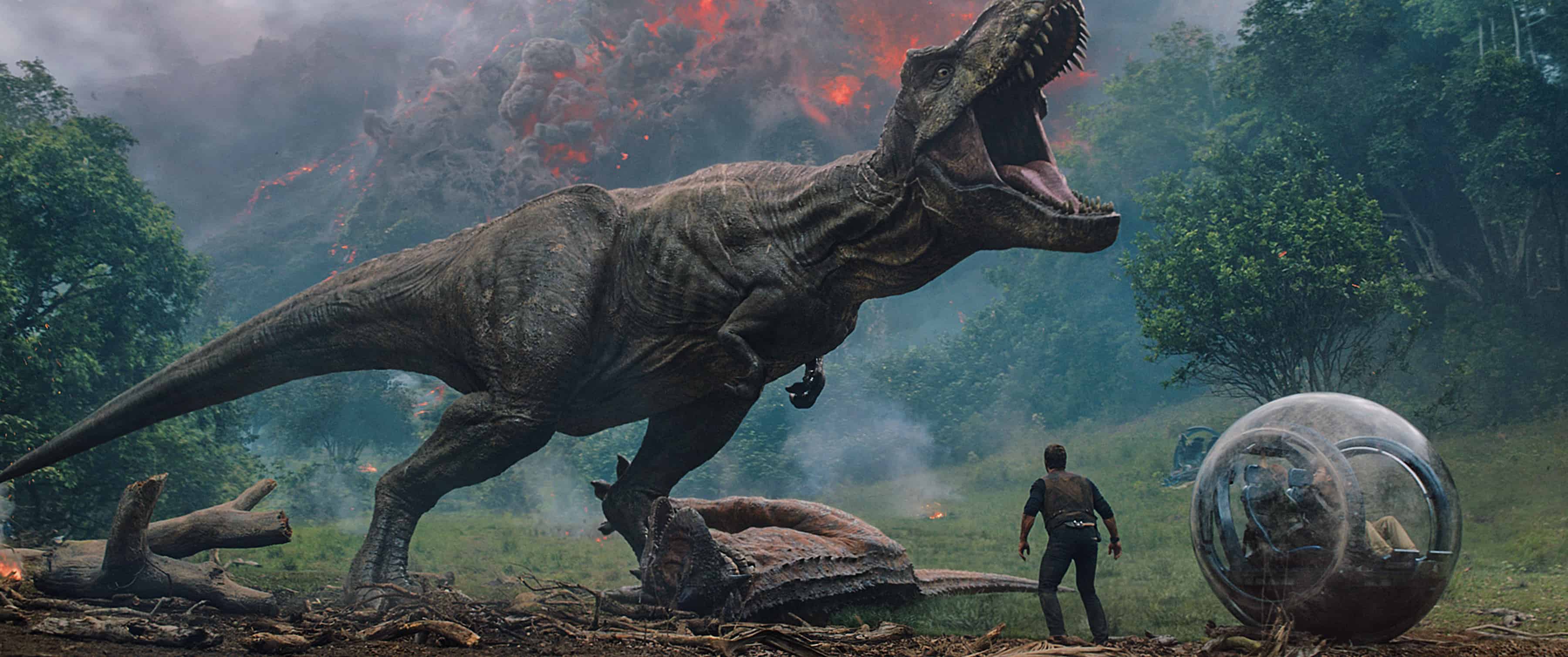If the definition of insanity is repeatedly doing the same thing and expecting different results, then I’m insane for seeing the latest “Jurassic Park” movie. None of them have even come close to the power and beauty of the original. I cannot recommend you see it, although if you are a fan of the original then it is probably inevitable that you will.
What frustrates me the most about the franchise is how little it has developed the ethical questions that made the original movie so intellectually fascinating.
On the surface, the conflict is between humans and dinosaurs. That’s important, because the humans think they can control the dinosaurs. The dinosaurs dispute this claim, however, by eating the humans. It’s a compelling argument.
As the movie’s wisdom figure, Ian Malcolm, makes clear, however, the deeper conflict is between amoral scientific knowledge and morality: the scientists develop powerful technologies without considering whether they should be doing so, and then deploy them without asking how they should do so. That science is fueled by the big money that funds the science, and in turn commercializes it for popular consumption.
The lesson is simple and bleak: humans need more humility because they cannot control nature. But they probably will not learn that lesson because there’s too much money to be made in ignoring it.
The latest movie provides a glimmer of hope, flirting with the idea that humans should somehow respect the dinosaurs and give them their space. Indeed, Chris Pratt’s connection with the velociraptor “Blue” tempts us to think that we might even be able to befriend the dinosaurs. But the dinosaurs don’t want space, and they don’t want friends. They want to eat humans.
Thus arises a total impasse, and the boom-and-bust cycle of greed and mayhem.
But perhaps, like me, you have never found Dr. Malcolm’s diagnosis fully satisfying. Yes, the scientists are vainglorious and arrogant. Yes, the greed of the investors pushes the technology in dangerous directions.
But these scientists are also dreamers in search of something noble: they love knowledge for its own sake, and they also have visions for how they can make society a better, more beautiful place through it. John Hammond, for instance, is as much a prophet as a businessman in his beautiful vision for Jurassic Park. Even Dr. Grant and Dr. Sattler in the original movie, while deeply skeptical of Hammond’s project, radiate sheer joy at the mere sight of the dinosaurs.
This desire to know is more than just love of money and power, although it is invariably complicated by that. It is a powerful desire that never stops driving them, even when they should have learned their lessons. Here, too, the tendency of modern science to be reduced to technology inevitably leads to trouble: knowledge is always used for something, in the pursuit of power, however benevolent.
Dr. Malcolm never captures that aspect. He never takes a hard look at why the scientists do what they do. He unimaginatively assumes that John Hammond could only have been driven by hubris and greed. That’s part of the story. But not all of it.
Dr. Malcolm also never really articulates an alternative to what he perceives as this realm of greed and pride. He seems to leave us to believe that nature is greater than us, that it is an irrational force that has chaos built into it, as Dr. Malcolm says at the end of this latest movie.
So should humans just accept our fate as helpless pawns of a cruel universe?
I think the way forward is to hold two things in tension:
1. Human beings are motivated to do great things.
2. Humans beings are flawed and do bad things.
In other words, we do need the humility urged on us by Dr. Malcolm. But we also need to cultivate our desire to do great things – to be great – because that is an essential part of us, too.
Thus the “Fallen Kingdom” in the movie’s subtitle: humans are weak, but we are capable of great things. Indeed, our weakness is most manifest in the midst of our struggles to greatness. The solution to that weakness is not to deny our thirst for greatness, but rather to cultivate it alongside a humble awareness of that weakness.
But maybe Dr. Malcolm wasn’t completely wrong. For finding humble ways to cultivate our desire for great things allows us to affirm positively what Dr. Malcolm says negatively: “Life finds a way.” Indeed, human life at its best should and must find a way.


